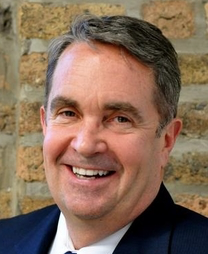Industry Insights
April 19, 2017
Keefe: Holy Smokes! Firefighter Loses WC Claim
- State: Illinois
- - 1 share
In an astounding development to all Illinois workers' compensation observers, a majority of the members of our very, very, very liberal Appellate Court, Workers’ Comp Division, joins with the Illinois Workers' Compensation Commission and lower court to deny a claim by an firefighter.

Eugene Keefe
In Johnston v. Illinois Workers' Compensation Commission, the Illinois Appellate Court, WC Division, in a 4-1 decision, agreed that a firefighter described as "a heart attack waiting to happen" should not receive workers' compensation benefits for a heart attack sustained simply cleaning his firehouse parking spot of snow.
The Appellate Court's opinion affirmed decisions by an arbitrator, the Workers' Compensation Commission and Judge David Akemann from the Circuit Court of Kane County. All agreed that claimant Kevin Johnston, age 46, had so many risk factors for a heart attack, his cardiac event could have occurred "anytime and anywhere," as the arbitrator described it. Those risk factors were enough to overcome Illinois' statutory presumption that all heart attacks suffered by firefighters at any time are a compensable injury.
The facts and expert opinions in this ruling are a solid outline of how to best defend any Illinois WC heart attack/stroke/death claim whether it involves a firefighter, or any worker.
Johnston had worked for the East Dundee Fire Protection District for 15 years when he went into work on a 15-degree day in February 2014. A heavy smoker who often brought high cholesterol/salt fast food into work, the 6-feet 1-inch, 265-pound Johnston was in the process of attempting to get healthier. A month before, he had switched to e-cigarettes after 20 continuous years of smoking a pack a day.
It snowed in East Dundee the night before, so after talking with a coworker in the firehouse, Johnston went to clean the area around his car. A coworker found him lying in the snow about 10 minutes later. Within minutes, a team of coworkers performed chest compressions and strapped Johnston to a backboard, using a defibrillator to revive him. They drove him to the hospital in an ambulance. The next day, he underwent emergency quadruple bypass surgery and survived the event.
Two weeks later, Johnston applied for workers' compensation benefits. The East Dundee Fire Protection District denied his application, and the matter went to an arbitration hearing five months later. At the hearing, four of Johnston's coworkers testified, making note that Johnston smoked "quite a bit" and was "not the healthiest eater." Two physicians submitted testimony as well: one who treated Johnston, and the other who examined him at his employer's request.
Johnston's treating physician, cardiologist Dr. Christopher Berry, testified that he had counseled Johnston on how to live a healthier life and told him he had coronary artery disease. Dr. Berry testified that Johnston's 15 years as a firefighter could be "considered a risk factor" for coronary artery disease.
Johnston had additional risk factors: obesity, a family history of coronary artery disease and a history of smoking. There was evidence that Johnston was "mildly diabetic" due to his habitus as well, Johnston noted.
Clearing snow could trigger cardiac arrest in a person with arteries as blocked as Johnston's, Dr. Berry testified, but at that point, it would be just as likely that a heart attack would occur at rest or doing just about anything.
Dr. Dan Fintel, the defense cardiologist who examined Johnston at his employer's request, said simply walking into the cold outdoors could have triggered the firefighter's heart attack.
"Any activity on a day in which the ambient temperature was 15 degrees in a cardiac patient can be life threatening or life ending," Fintel testified. Asked whether working as a firefighter was a risk factor for coronary artery disease, Fintel said it could be. Since he did not have access to evidence indicating how often Johnston was exposed to smoke, Fintel could not say for sure.
As we indicate above, the arbitrator considered all evidence and denied the claim. Johnston "was a heart attack waiting to happen, and his employment activities neither aggravated nor accelerated his already severe and highly advanced coronary artery disease," the arbitrator wrote.
The Workers' Compensation Commission panel affirmed and adopted the arbitrator's opinion. Circuit Court Judge Dave Akemann, who was an IWCC hearing officer earlier in his career, confirmed the decision.
On appeal, Johnston attempted to persuade the Appellate Court that the IWCC's finding was contrary to the "manifest weight of the evidence."
Please note that Illinois law has a presumption that cardiac issues for a firefighter with five years of service are compensable. I don’t agree with the basis for the “firefighter’s presumption,” but the law is the law.
My problem with the firefighter’s presumption is the urban legend or myth that all firefighters are surrounded by and breathe clouds of smoke at work every day of every year. In my opinion, very few firefighters actually breathe smoke during regular work that usually involves more medical calls than live firefighting.
In this claim, I would assume the petitioner's attorney would have introduced evidence of exposure to smoke during live fires, if they had such evidence. The dearth of testimony/evidence of Johnston's exposure to smoke from a live fire jumps out at anyone reviewing the ruling. What rhymes with “breathing equipment” that protects firefighters from the smoke at the occasional live fire?
Therefore, the Appellate Court first had to consider whether the East Dundee Fire Protection District presented enough evidence to prove Johnston's coronary artery disease was not linked to work, thus rebutting the presumption in Illinois law that firefighters' heart conditions are compensable. After considering the simple facts, and Dr. Berry and Dr. Fintel's expert testimony, the court decided that the district presented enough evidence to rebut the presumption.
I salute the four members of the Appellate Court for writing an excellent and well-reasoned ruling that makes enormous common- and legal sense to me.
Justice William E. Holdridge, who we thought of as being from Republican roots in Peoria, dissented in a ruling we feel is about as liberal/radical as any WC justice could write. Justice Holdridge thought Dr. Fintel's opinion was insufficient to rebut the presumption.
"Even assuming … that the claimant's coronary artery condition was initially triggered solely by personal risk factors such as smoking and obesity (which is not clear from the evidence), Dr. Fintel lacked sufficient information to conclude that the claimant's condition was not aggravated or accelerated by his occupational exposure to smoke and fumes," Holdridge wrote in his sole dissenting opinion.
We agree with other court watchers who have been quoted to say that if you follow Justice Holdridge’s logic, it would be virtually impossible to ever overcome the firefighter’s presumption. In my view, Justice Holdridge will never deny a claim by a firefighter, regardless of whether all of the other nine hearing officers, including the arbitrator, IWCC panel, Circuit Court judge and the other four justices disagree.
Eugene Keefe is a founding partner of Keefe, Campbell, Biery and Associates, a Chicago-based workers' compensation defense firm. This column was reprinted with his permission from the firm's client newsletter.
Advertisements
Columns
- Wade: Are the Old Ways Gone? 06/13/25
- Snyder: Trust Your Intuition 06/12/25
- Montgomery: DIR Director Reportedly Resigning 06/11/25
- Gelman: Supreme Court to Review COVID Compensability 06/06/25
- Paduda: WCRI's New Studies 06/05/25
- Moore: 187 Pages of WCRI State Stats 06/02/25
- Paduda: The Gutting of NIOSH 05/30/25
- CAAA: Left in the Smoke 05/28/25
- Gelman: Intentional Wrong? 05/27/25
- Wroten: State's Workers' Comp Crisis a Stark Contrast to National Stability 05/23/25
- Montgomery: Comp Is a Cash Cow, but Insurers Want Higher Rates 05/21/25
- Snyder: Credible Negotiation 05/19/25
- Paduda: The State of Work Comp 05/16/25
- Snyder: Two Opposing Views on Litigation Management 05/14/25
- Montgomery: City Pays Doctor $32 to Treat Injured Employee 05/12/25
- Gelman: Medical Reports Matter 05/09/25
- Montgomery: Rand Gets $300K for UR Study. What's the ROI? 05/05/25
- Salem: Respondent Who Is Not Employer May Not Owe Filing Fee 05/02/25
- Gelman: When Credibility Crumbles 04/30/25
- Montgomery: More States Move to Expand Workers' Comp PTSD Coverage 04/28/25
Now Trending
- Workers' Compensation News
-
Calif. Crackdown
on Tech in Workplace Could Hit…
Posted on Jun 12, 2025
-
Calif. 3rd DCA
Publishes Decision That Erroneous
Evidentiary Rulings Aren't…
Posted on Jun 13, 2025James Witkop says: “Another case that was published via the efforts of the California Lawyers…”
-
Calif. Court
Publishes Decision Applying
Sovereign Immunity to Tribal Health
Care…
Posted on Jun 11, 2025
-
Calif. Senate
Committee Passes State Hospital
Worker…
Posted on Jun 13, 2025
-
Alaska Supreme
Court Revives Worker's Maritime
Tort Claims for Accident on…
Posted on Jun 10, 2025
-
Wash. High Court
Adopts New Standard for Intentional
Harm Exception in Latent…
Posted on Jun 9, 2025
-
Hawaii Supreme
Court Reinstates Worker's Claims
for Disability Discrimination,…
Posted on Jun 11, 2025
-
N.C. Exclusivity
Doesn't Bar Worker's Civil Suit
Over Mold-Infested…
Posted on Jun 10, 2025
-
Ky. Injured
Worker's Claim Against Employer's
Auto Insurance Provider…
Posted on Jun 12, 2025
-
La. Lawmakers Pass
Bill to Allow Post-Audit Premium…
Posted on Jun 10, 2025
Jobs
Upcoming Events
Jun 14-28, 2025
2025 Legal Specialization Test
Course Description: This 3-part series instructed by experienced workersĺ compensation attorney an …
Sep 2-4, 2025
San Diego Elevate Workers' Com
We are thrilled to announce that Early Bird registration is OPEN for ELEVATE« 2025! This year's …
Social Media Links
c/o Business Insurance Holdings, Inc.
Greenwich, CT 06836




No Comments
Log in to post a comment